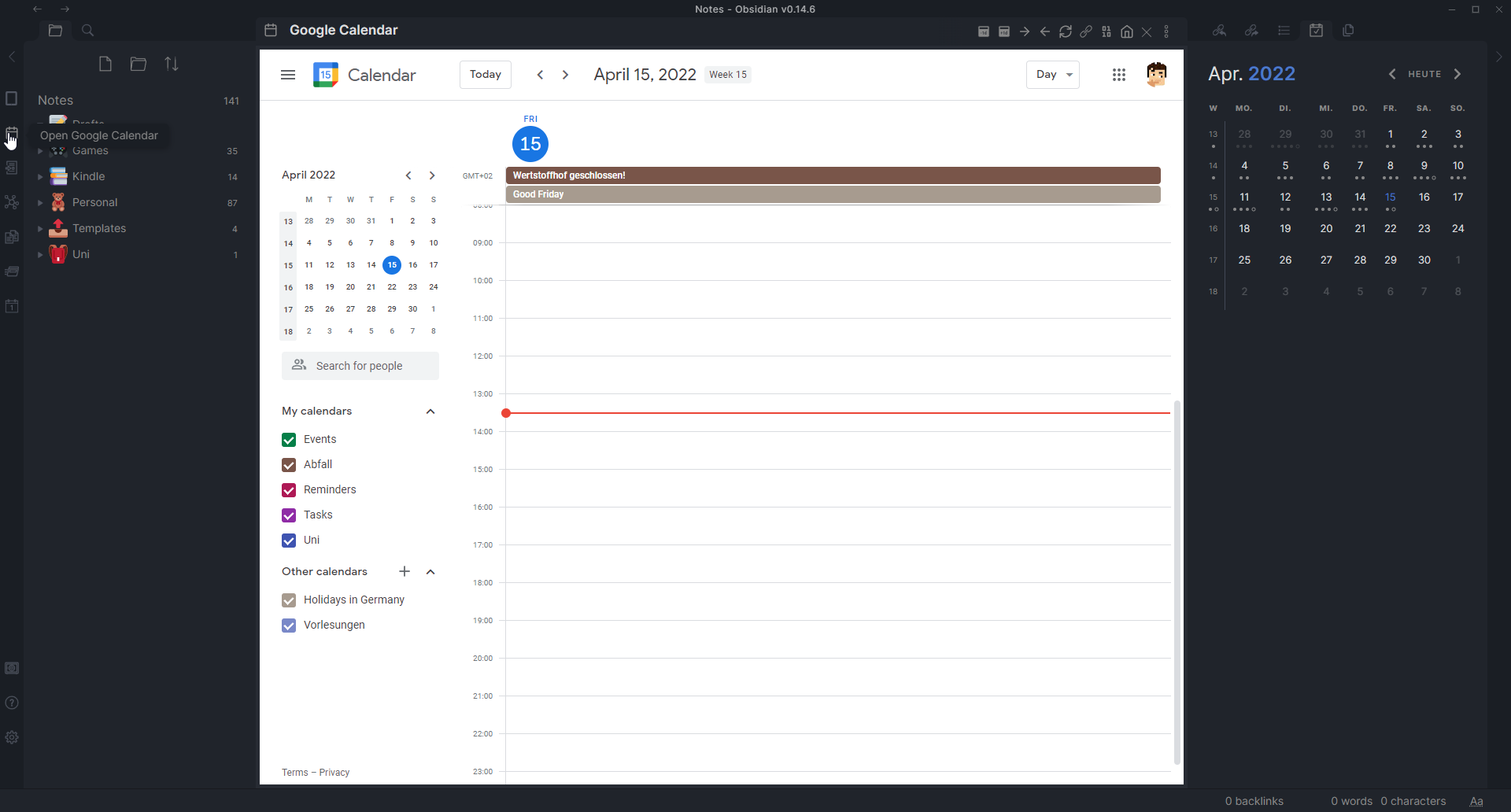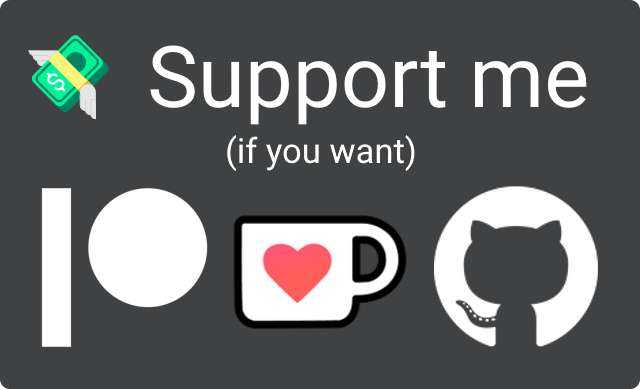| .github | ||
| src | ||
| .editorconfig | ||
| .gitignore | ||
| CONTRIBUTING.md | ||
| esbuild.config.mjs | ||
| LICENSE | ||
| manifest.json | ||
| package-lock.json | ||
| package.json | ||
| README.md | ||
| screenshot-big.png | ||
| screenshot.png | ||
| settings.png | ||
| styles.css | ||
| tsconfig.json | ||
| versions.json | ||
Obsidian Custom Frames
An Obsidian plugin that turns web apps into panes using iframes with custom styling. Also comes with presets for Google Keep, Todoist and more.
⚠️⚠️⚠️ For header-heavy sites like Google Keep and Todoist to work, this plugin requires Obsidian 0.14.3. ⚠️⚠️⚠️
🤔 Usage
To use this plugin, simply go into its settings and add a new frame, either from a preset shipped with the plugin, or a custom one that you can edit yourself. Each frame's pane can be opened using the "Custom Frames: Open" command.
There are also plenty of settings to customize your frame further, including adding custom CSS to the site, adding a ribbon icon, displaying the frame in the center of the editor, and more.
🗒️ Markdown Mode
You can also display your custom frames in your Markdown documents. Custom Frames adds a special code block syntax that transforms the code block into a custom frame in Live Preview and Reading mode. Your code block should look like this:
```custom-frames
frame: YOUR FRAME'S NAME
```
Optionally, you can also pass custom style settings to the embed, which allows you to change things like the embed's height:
```custom-frames
frame: YOUR FRAME'S NAME
style: SOME CSS
Here's an example that creates a very tall embed using the Google Keep preset:
```custom-frames
frame: Google Keep
style: height: 1000px;
```
📱 On Obsidian Mobile
Unfortunately, Obsidian Mobile does not run on Electron, which is what allows iframes and webviews to be displayed with very few restrictions related to cookies, cross-origin resource sharing, and so on. This means that a lot of sites won't work there, especially ones that you have to log in to. However, when you create a frame, you can toggle the "Disable on Mobile" option to hide a Desktop-only frame in Obsidian mobile.
📦 Presets
By default, Custom Frames comes with a few presets that allow you to get new panes for popular sites up and running quickly.
- Obsidian Forum
- Google Keep, optimized for a narrow pane on the side
- Google Calendar, optimized by removing some buttons. Close side panel with top-left button.
- Todoist, optimized for a narrow (half-height) side panel by removing some buttons and slimming margins.
- Notion (it's recommended to close Notion's sidebar if used as a side pane)
If you create a frame that you think other people would like, don't hesitate to create a pull request with a new preset.
🛣️ Roadmap
Allow setting a custom icon for each paneAllow displaying custom frames in Markdown code blocksAdd the ability to add a ribbon button for a frame that opens it in the main view- Allow creating links that open in a custom frame rather than the browser
- Possibly allow executing custom JavaScript in iframes (though security implications still need to be explored)
- Add a global setting that causes popups to be opened in a new Obsidian window rather than the default browser
- Add more options to Markdown mode, like allowing for back and forward buttons
⚠️ Known Issues
There are a few known issues with Custom Frames. If you encounter any of these, please don't report it on the issue tracker.
- In older versions of Obsidian, specifically 0.14.2 and lower, a lot of websites don't function properly in custom frames. This is due to these older versions not having features in place that allow for frames to have special, additional functionality related to cookies and headers.
- When dragging or moving a pane, hovering the mouse over a custom frame will cause it to get stuck or behave unexpectedly. This is an issue with Obsidian itself, which is being investigated.
🙏 Acknowledgements
Thanks to lishid for their help with making iframes work in Obsidian for a purpose like this. Also thanks to them for motivating me to turn Obsidian Keep into a more versatile plugin, which is how Custom Frames was born.
If you like this plugin and want to support its development, you can do so through my website by clicking this fancy image!



